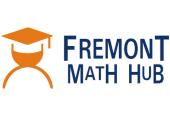In today’s fast-paced digital environment, education has become more accessible than ever. One subject where this transformation has made a huge impact is mathematics. Whether you’re struggling with fractions or diving deep into calculus, high-quality math courses online now allow you to learn math at home without the pressure of a traditional classroom.
This article explores the best online math courses for self-study, offering insights, platforms, strategies, and recommendations to help you master math in a flexible, affordable, and efficient way.
Benefits of Learning Math Online
The popularity of math courses online has grown rapidly due to their accessibility and adaptability. Let’s take a closer look at why they are an excellent choice:
1. Flexibility
Online courses let you learn at your own pace, and you can pause, rewind, as well as revisit any lesson whenever needed. This flexibility helps reduce stress and improve retention.
2. Affordability
Most online courses cost less than traditional tutoring or school fees. Some platforms even offer free math courses with optional paid certificates.
3. Access Expert Content
Many courses are created by university professors or industry professionals. You gain access to top-tier educational material, sometimes better than what’s found in traditional classrooms.
4. Interactive and Visual Learning
Modern online platforms integrate videos, animations, quizzes, and real-time feedback that make abstract concepts easier to understand.
5. Diverse Course Selection
From basic arithmetic to data science applications, you can choose exactly what you need, eliminating unnecessary topics.
With all these benefits, it’s no surprise that more learners are choosing to learn math at home through structured online programs. Learn more about online math classes here.
Top Self-Study Math Courses by Level
The beauty of self-study math courses is that you can progress according to your comfort and current knowledge. Here’s a suggested breakdown based on skill level:
a) For Beginners
- Basic Arithmetic – Master addition, subtraction, multiplication, division, etc.
- Pre-Algebra – Introduction to variables, simple equations, and number properties.
b) For Intermediate Learners
- Algebra I & II – Learn linear equations, inequalities, polynomials, and functions.
- Geometry – Explore points, lines, planes, angles, and proofs.
- Trigonometry – Study triangle, identities, and unit circle concepts.

c) For Advanced Learners
- Pre-Calculus & Calculus – Build on functions and learn about limits, derivatives, and integrals.
- Linear Algebra – Understand matrices, vectors, and transformations.
- Statistics & Probability – Learn how to analyze data and apply real-world mathematical models.
No matter your level, a well-chosen course will help build a solid mathematical foundation.
How to Choose the Right Course for You
Selecting the best course involves understanding your goals, preferences, and current skill level. Use these tips:
- Assess your current level honestly. You don’t want to start too high and feel overwhelmed.
- Define your goal. Are you preparing for an exam? Advancing your career? Or just learning for fun?
- Decide on your learning style. Do you prefer video lectures, reading materials, or hands-on problem-solving?
- Check the course format. Make sure it includes interactive elements like quizzes, projects, or real-world examples.
- Read reviews and ratings. Other learners’ feedback often highlights strengths and gaps.
Taking time to choose the right course makes your self-study journey smoother and more effective.
Tips to Learn Math at Home Effectively
Studying from home offers many advantages—but it also requires discipline. Here’s how to stay on track:
1) Stick to a Schedule
Set specific hours for math study and treat them like appointments. Consistency builds momentum.
2) Start with Small Goals
Break down big topics into smaller sections and set daily or weekly milestones.
3) Use Multiple Resources
Sometimes a different explanation or example helps a concept “click.” Use videos, forums, textbooks, and apps together.
4) Practice Daily
Math is like a muscle—the more you practice, the stronger it gets. Use drills, flashcards, and timed quizzes to stay sharp.
5) Join Online Communities
Platforms like Reddit, Discord, and Quora have math forums where you can ask questions and get help from peers.
6) Apply Math to Real Life
Look for math in your surroundings, budgeting, measuring ingredients, or tracking data—so you can relate theory to practical scenarios.
Learning math alone doesn’t mean learning in isolation. Use the tools available to stay connected, supported, and motivated.

Conclusion
Mastering math doesn’t have to involve a classroom or a private tutor. With today’s technology, learners of any age can access structured, high-quality math courses online to learn math at home effectively and confidently.
Whether you’re brushing up on basic skills, preparing for an exam, or diving into advanced topics, self-paced courses allow you to control your learning path. With a little structure and motivation, your math goals are completely within reach.
For those seeking a reliable and supportive learning platform, Fremont Math Hub offers expert-designed courses with real-time feedback, structured lessons, and tailored pathways that make math accessible and rewarding for every learner.
FAQs
What is the best online platform to learn math at home?
Khan Academy, Coursera, Brilliant, and Fremont Math Hub are among the best platforms. Each offers unique features and covers a broad range of math topics.
Can I study advanced math topics online without a tutor?
Absolutely. Many learners complete advanced courses like calculus and linear algebra independently using online resources. Interactive tools and community forums also help answer questions when you’re stuck.
How long does it take to complete an online math course?
Duration varies. Introductory courses might take 2–4 weeks, while advanced topics can take a few months. The self-paced format allows you to speed up or slow down as needed.
Are online math certificates recognized by employers or colleges?
Yes, especially those from platforms like Coursera, edX, and Fremont Math Hub. Certificates show initiative, self-discipline, and a desire to learn, all valuable to employers and educational institutions.


